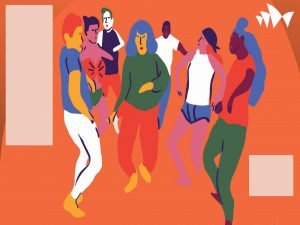All About Women

Right here in Coffs Harbour, we will be streaming three headline sessions and an exclusive backstage Q&A.
Event timeline | Sunday, 10 March 2019
(All times are AEDT)
| 1315-1430 | #MeToo, Year Two – Emily Steel, Sohaila Abdulali, Tina Tchen hosted by Lenore Taylor |
| 1430-1500 | An exclusive backstage speaker interview will be conducted by Edwina Throsby, Head of Talks and Ideas, Sydney Opera House, with Emily Steel |
|
1500-1600
|
feminism in the Arab world Aya Chebbi, Dima Matta, Randa Abdel Fattah hosted by Sarah Saleh |
| 1615-1730 | leading while female julia banks, julie bishop, linda burney, sarah hanson-young hosted by Jacqueline Maley |
ME TOO: YEAR TWO
Emily Steel, Sohaila Abdulali, Tina Tchen
hosted by Lenore Taylor
A decade since the Me Too campaign began, and a year since #metoo rocked the entertainment industry, there has been a clear cultural shift.
Across industries, women who were preyed upon, exploited and harassed have spoken out and sought justice, and the movement has gone global.
But it hasn't all happened smoothly. Louis CK returned to the comedy stage. The Senate confirmed Brett Kavanaugh to the Supreme Court. Now that accountability frameworks have been put in place, are the structures of justice and legal systems changing? Have we seen a fundamental shift in the way power functions, or is it temporary and superficial? How is #metoo playing out in different countries and cultures?
In this essential panel, we'll be exploring how the movement must evolve to represent women worldwide, and to create long-lasting cultural and political change.
FEMINISM IN THE ARAB WORLD
Aya Chebbi, Dima Matta, Randa Abdel Fattah
hosted by Sarah Saleh
In a global feminist movement, our understanding of women's rights needs to go far beyond the English-speaking world.
Arab women are so often pigeonholed, orientalised and othered in western discussions about feminism. But the reality is there are strong feminist and LGBTQI movements across the Arab world.
This panel, co-curated by artist, poet, and activist Sara Saleh, challenges the assumptions so frequently made by westerners, that Arab women are subjugated and oppressed, by giving space for some of the loudest activist voices across the middle east.
This session will demonstrate that discussions about women in the Arab world can go much deeper than “why do you wear hijab?”, and explore the issues and concerns, both political and personal, for Arab women and LGBTQI people.
LEADING WHILE FEMALE
julia banks, julie bishop, linda burney, sarah hanson-young
hosted by Jacqueline Maley
While some of our most popular politicians are women, they are still frequently overlooked for leadership positions, are subjected to personal scrutiny to a level not inflicted on their male colleagues, and they cop all sorts of sexist garbage while just trying to do their jobs.
Yet women have a huge amount to contribute to public life, and our society would benefit from greater female representation in parliament. So what needs to change to make more women want to run for public office in Australia? Join this frank discussion about the pitfalls and rewards of working in the sector, and how we can shift the culture so girls who want to grow up to be PM are inspired, not discouraged.

And cartooning and being a cartoonist is still seen as a male domain, especially in Australia. Female cartoonists are in the minority, not taken as seriously, are paid significantly less and often only their commentary on the domestic domain is considered.
Yes, female cartoonists are in the minority. When our current exhibition, “Behind the Lines” finishes (7 July), our “Bird’s Eye View”, a collection of cartoons by women cartoonists will return. It’s been very well-received and will be ‘back by popular demand’.